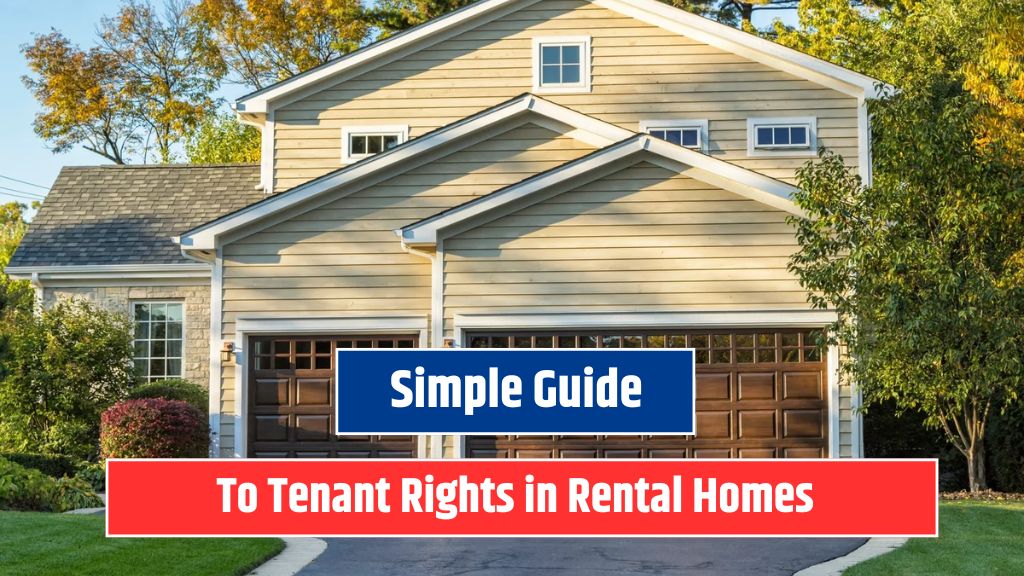If you are renting a privately owned property, it’s important to understand your rights and responsibilities as a tenant. This guide will help you stay informed and maintain a good relationship with your landlord.
Your Rights as a Tenant
As a tenant, you have several legal rights that protect you during your tenancy:
1. Live in a Safe and Well-Maintained Property
You have the right to live in a property that is safe, clean, and properly maintained by the landlord.
2. Get Your Deposit Back
When your tenancy ends, you are entitled to receive your deposit back, provided you meet the terms of the rental agreement. In some cases, the deposit must be protected through a government-approved scheme.
3. Challenge Excessive Charges
You have the right to dispute unfair or high charges imposed by the landlord.
4. Know Who Your Landlord Is
Your landlord is required to provide their contact details. If you do not know who they are, you can write to the person or agency you pay rent to. If they fail to give you this information within 21 days, they can be fined.
5. Live Undisturbed
You have the right to privacy and peaceful enjoyment of the property without unnecessary interference from your landlord.
6. See an Energy Performance Certificate (EPC)
The landlord must provide an EPC, which shows the energy efficiency rating of the property.
7. Protection from Unfair Eviction and Rent Increases
You are protected by law from being unfairly evicted or facing sudden and unreasonable rent hikes.
8. Written Agreement for Long-Term Tenancies
If your tenancy lasts more than three years, you should have a written rental agreement. This ensures that the terms are clear and follow legal guidelines.
When You Start a New Tenancy
- In England: Your landlord must give you a copy of the “How to Rent” guide.
- In Scotland: Your landlord must provide a Tenant Information Pack with details about your rights and responsibilities.
Your Responsibilities as a Tenant
To avoid legal issues or eviction, you need to fulfill the following responsibilities:
1. Allow Landlord Access for Inspections or Repairs
Your landlord has the right to inspect the property or perform necessary repairs. However, they must give you at least 24 hours’ notice and visit at a reasonable time unless it’s an emergency.
2. Take Care of the Property
You should maintain the property, such as turning off the water during cold weather to prevent damage.
3. Pay Rent on Time
Even if repairs are needed or you have a dispute with your landlord, you must continue paying rent as agreed.
4. Pay Other Agreed Charges
This could include utility bills or Council Tax, depending on your agreement with the landlord.
5. Repair or Pay for Damages
If you, your family, or guests cause damage, you are responsible for repairs or covering the costs.
6. Sublet Only with Permission
You cannot sublet the property unless your tenancy agreement or landlord allows it.
Consequences of Not Meeting Your Responsibilities
If you fail to follow your responsibilities, your landlord has the right to take legal action to evict you from the property.
Being a tenant comes with both rights and responsibilities. Your rights protect you from unfair treatment, while your responsibilities help maintain the property and ensure a smooth tenancy. Understanding these points can prevent disputes and ensure a positive renting experience. Always communicate with your landlord if any issues arise, and know the legal protections available to you.
FAQ’s
What rights do tenants have regarding property safety?
Tenants have the right to live in a safe and well-maintained property. Landlords are legally obligated to address maintenance issues and ensure the property complies with health and safety standards.
What happens if a landlord refuses to return a tenant’s deposit?
If a landlord refuses to return the deposit without valid reasons, tenants can file a dispute with a deposit protection scheme or take legal action. The law protects tenants from unfair deductions.
Can a landlord enter the property without notice?
No, a landlord must provide at least 24 hours’ notice before entering, except in emergencies. Entry must be at a reasonable time agreed upon with the tenant.
What responsibilities do tenants have regarding property maintenance?
Tenants must take care of the property, report any damage, and perform basic tasks like keeping it clean and turning off water during cold weather. Damage caused by the tenant must be repaired or paid for.
Can tenants sublet a rented property?
Tenants can only sublet the property if the tenancy agreement or landlord permits it. Unauthorized subletting can lead to eviction or legal action.
